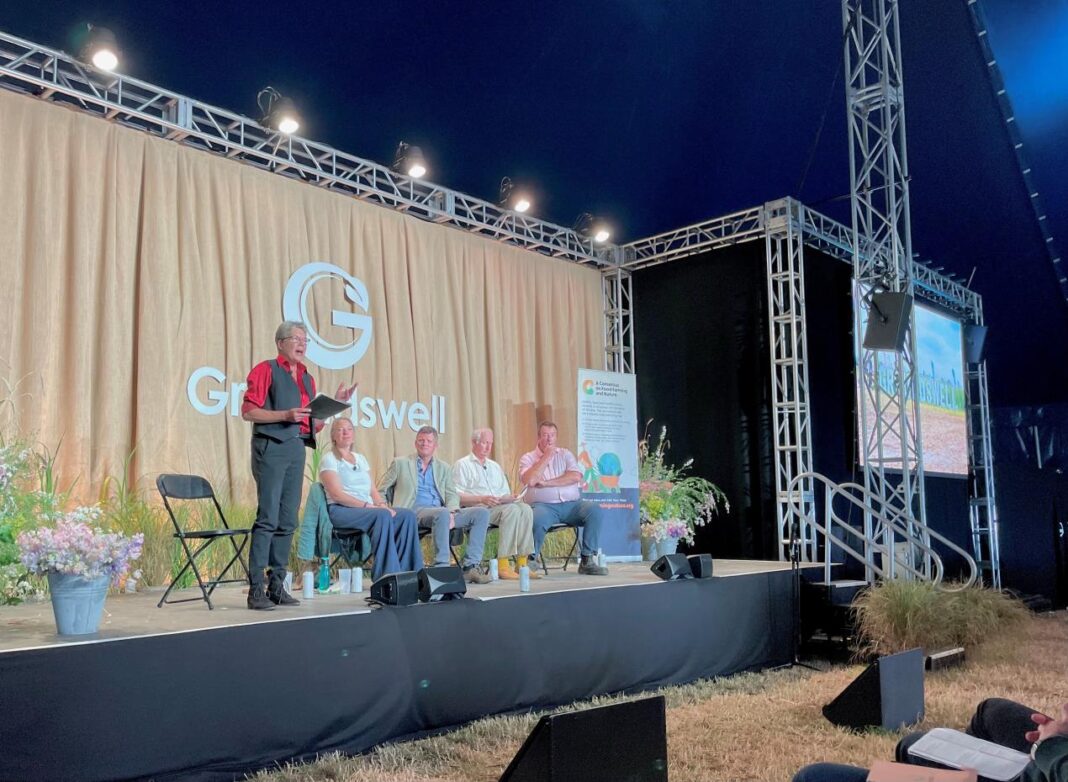At Groundswell farming festival last month, the UK’s three largest political parties welcomed a vision for nature-friendly food production put forward by environmental groups, leading to ‘common ground’ being established on the future fundamentals of farming.
Helen Browning OBE, chief executive of the Soil Association (SA), chaired a session at Groundswell in which a consensus on food, farming and nature was put forward by the RSPB to representatives from the Conservative, Labour and Liberal Democrat parties.
The Consensus for Food Farming and Nature calls for a transformation of the food system to ‘ensure diets sit within planetary boundaries’ and secure a fair deal for farmers. Further, it recommends that future farming must ‘embrace nature as an ally’ by breaking ties with chemicals, using technology responsibly and regenerating soils. The reward for such a transformation would be ‘healthier people, resilient farming livelihoods, prosperous rural communities, thriving wildlife and a stable climate’.
This vision has received support from the SA, along with a number of groups including WWF, Nature Friendly Farming Network, the RSPB, the Wildlife Trusts and the Woodland Trust, all of whom have signed the consensus.
Participating in the panel were Daniel Zeichner MP (Labour), Stuart Roberts, advisor to the Liberal Democrats, and Lord Benyon, Minister of State, Defra.
There’s so much common ground between parties
“There’s not a lot that actually divides us on these key issues. And that’s good. That’s good for your businesses, that’s good for organizations that want to push the Government in whatever form that takes into a certain direction,” commented Benyon. “Unlike countries like the United States, we agree that humanity’s greatest challenge is tackling climate change.”
Discussions led to cross-party agreement that change must occur within our food systems in order for the diet-related public health crisis to be addressed.
After moderating the debate, Browning commented: “There’s so much common ground between parties and with what we’re saying. That’s what this consensus is all about – finding common ground, that’s the only way we’ll make progress. Everyone acknowledged the problem; no-one is saying we need to get back on the chemical treadmill that farming has been on in recent decades.
“What is frustrating is the pace. If we had 30 years, I would feel very optimistic – but we don’t, we have five years to tackle the climate and nature emergencies. We need to act faster and to be more long-sighted to stop us going off the cliff on both climate and public health.
If we had 30 years, I would feel very optimistic – but we don’t
“Things are happening around sustainable farming policy, but the big failing is on health. Politicians need to grasp the importance of tackling the issue of ultra-processed foods and using the cost of living crisis to stall on things like junk food promotions is quite disgraceful,” Browning added.
Warnings over poor diet were echoed throughout Groundswell; during a panel on public procurement Rob Percival, head of food policy, SA, criticized Governmental inaction on junk food marketing and buy-one-get-one-free promotions on unhealthy food and drink. “The supermarkets are saying do it, we’re ready. It’s political cowardice not to. There is really good evidence that buy-one-get-one-free deals make people spend more money. There is public appetite for government intervention – [there are] no excuses.”
Percival went on to urge Government to follow Henry Dimbleby’s National Food Strategy recommendations around improving the food served in schools and hospitals, using the standards set out in the SA’s Food for Life model.











